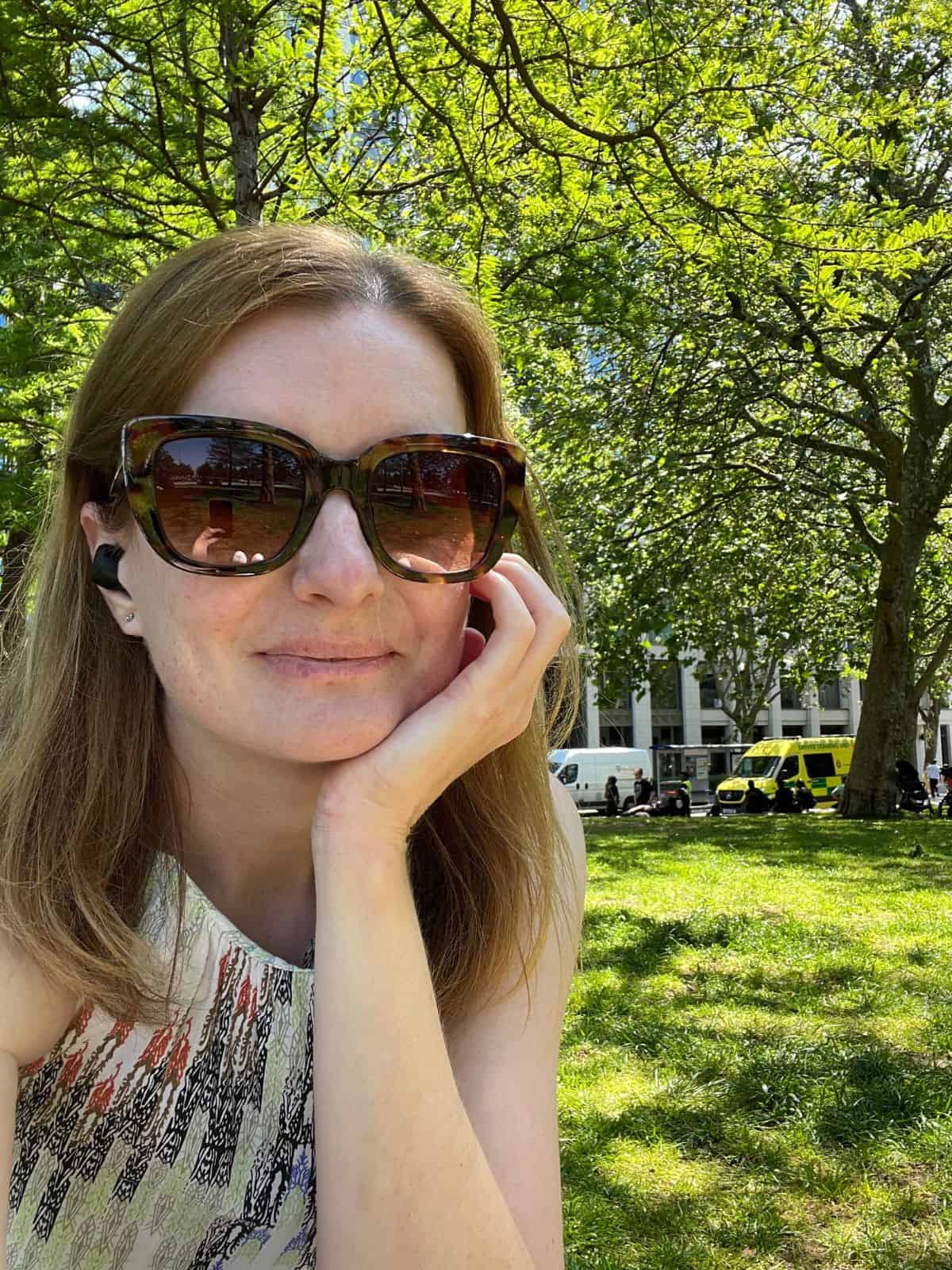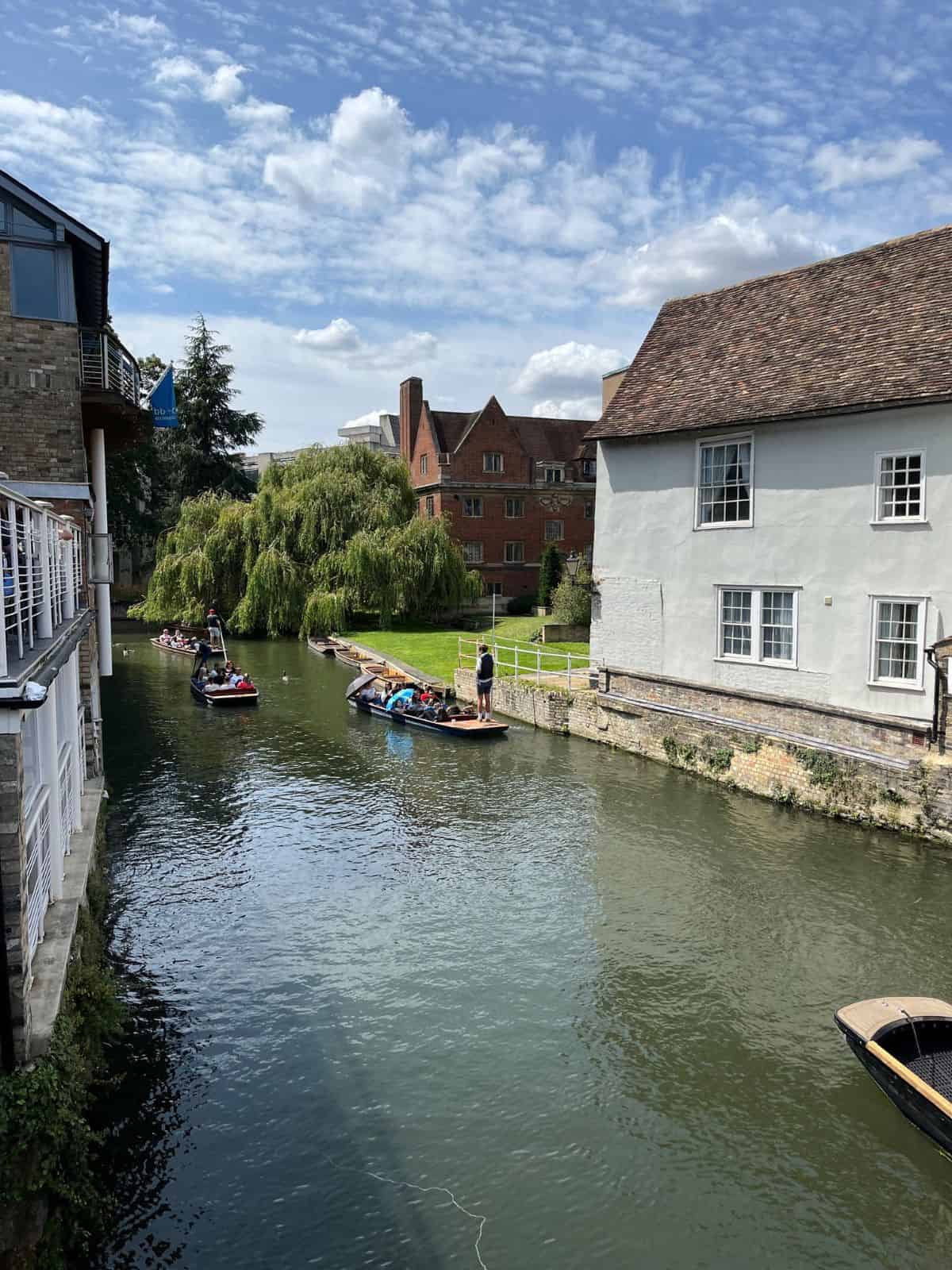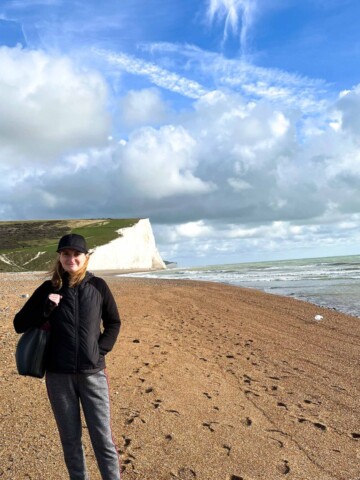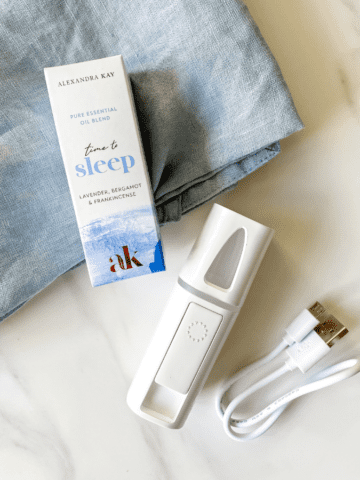Living with MCAS (mast cell activation syndrome) can be challenging, but like many I hadn’t ever heard of it prior to my diagnosis. I think I may have vaguely heard of mastocytosis, but I didn’t know any specifics as to what the condition was, or what the symptoms were. I think this is true of most people to be honest.
Then about two years ago I started having some symptoms that no doctor I saw could understand. I was brushed off with it being my existing conditions, namely POTS, hEDS, fibromyalgia and interstitial cystitis, or that it was down to anxiety.
But I know my body fairly well and I knew that it wasn’t either of those possibilities. These were definitely new symptoms that I hadn't experienced before.
This post is my story, and for informational purposes only. It does not constitute medical advice in any way. Please consult a doctor if you believe you have MCAS or require treatment for any symptoms.

Jump to:
Getting a MCAS diagnosis
Getting a diagnosis of MCAS is notoriously difficult, so I am going to give you the shortened version! Sadly many people struggle for years to find a doctor who is knowledgeable on the condition and will diagnose, and then help those living with MCAS to better manage their symptoms.
I had been getting new symptoms for some time, and drawn a blank with most of my doctors, including some that I paid privately to see. By chance, I saw a neuro-gastroenterologist at a London hospital, who I had been referred to for existing stomach issues. During the course of the conversation he mentioned MCAS and stated that there seems to be an association between the condition of MCAS, POTS and hEDS, both of which I had already been diagnosed with a few years before.
He asked me a lot of questions about my symptoms, and if I thought there were any triggers for them. He also asked me to ‘draw’ on my skin with my fingernail to see how long it stayed red. He did the same on his arm. After a minute or so his mark had pretty much disappeared; mine had not ten minutes and more later. I later learnt that dermographism (‘writing on skin’) is a common symptom (and potential indicator) of histamine issues.
Then I saw my cardiologist, who also suspected I was living with MCAS. He referred me to a specialist doctor - an immunologist.
After asking me questions about my symptoms, the immunologist followed these steps to assess me for MCAS:
- I had blood and urine tests which confirmed high levels of histamine.
- I was prescribed with mast cell stabilisers and anti-histamines (not all at once, over time). My response to the medications was an important indictor that I had MCAS. As Mast Cell Action describe, this is sometimes known as a 'test of treatment' and is 'underpinned by the theory that, if a person responds to MCAS treatment, this is evidence to suggest that the individual has MCAS'.
- He reviewed other tests results I already had, to rule out other conditions.
There is an overview of this stepwise approach to diagnosing MCAS on the Mast Cell Action website.
MCAS symptoms
My MCAS symptoms are highly variable, barely perceptible one day, really troubling the next. However, over time my symptoms have reduced with the use of medication, following a low histamine diet and avoiding triggers as best I can. I am very fortunate that I haven’t ever gone into anaphylactic shock, which a minority of patients do. So although I carry epi pens and steroid tablets with me, I haven’t ever had to use them. I truly hope that I never do.
Mast Cell Action note that 'symptoms usually involve multiple systems of the body and can include skin (dermatologic) symptoms, gastrointestinal symptoms (such as abdominal pain, nausea and vomiting), respiratory symptoms, neurological problems and urinary issues'.
For myself, it can be hard to separate out some of the symptoms of MCAS from my other conditions (mainly POTS, fibromyalgia and hypermobility EDS). However, the symptom that I find most troubling is a feeling of burning, itchy, stinging skin on my face around my cheeks and chin. It is also mildly flushes at times as well. Those symptoms came about quite suddenly and have been attributed to the MCAS.
Other MCAS symptoms include fatigue, headaches and migraine attacks, fatigue, dizziness, stomach issues and more.

Living with MCAS
Each day it feels as though it is a battle to keep my MCAS symptoms under control. Sometimes I win this battle, other times not. In particular, the skin problems - namely, flushing that feels like burning and stinging on my face - are very painful and dominate my thoughts.
Given the potential, albeit minor potential, that MCAS symptoms can lead to serious issues, it does make me feel anxious when I have a significant flare-up of symptoms. As I set out in my blog post 'Trying to calm down a MCAS flare-up', when this happens, life has to turn to focusing on rest and relaxation, eating well and avoiding stress, in order to get everything back to my version of 'normal'.
Managing triggers of mast cell activation
Everyone living with MCAS will react to triggers in a different way, and have different triggers too. For me personally, food and heat are the main issues. Artificial scents are also problematic, and stress is never good!
Food triggers
I follow a low histamine diet on the recommendation of my specialist doctor, and the SIGHI list in particular as I talk about below. Certain foods can being on symptoms, and make me feel quite unwell.
Following a restrictive diet isn’t too bad at home, but eating out is really difficult. Trying to find something as simple as a salad that doesn’t have tomatoes, spinach, avocado or mature cheese in it is a task! I often carry my own food with me, or at least a snack to tide me over for a while.
It is the major reason why I started to make low histamine recipes, and provide these on my blog. There seems to be so little provision for a low histamine diet, and I hope that these help people who have this dietary requirement.
Heat
Heat is another issue for me. It is a known trigger for MCAS symptoms, and one of my biggest triggers. A hot room is awful and I will very quickly start to flush and get the burning feeling on my face. And hospital waiting rooms are always so hot! Why is the NHS spending so much money heating hospitals to sauna-level temperatures?!
So I try and make sure I turn up to places I know are going to be hot just before my appointment time and not too far in advance, avoid the sun in the middle of the day and have warm rather than hot showers. Wearing layers so that I can take off a jumper or jacket is also useful. And I am definitely known to open a window or turn down a radiator!
Exercise
Exercise can also be a trigger, so I avoid the midday sun if I can, and go for a walk / run earlier in the day and under the shade of trees as much as possible. I always carry water with me, as well as my epi pens. If my skin is flaring then I don’t exercise or only do a short, slow walk instead.
For more on triggers and how I manage them, you may like to check out my post my 5 main triggers of mast cell activation and how I manage them
The low histamine diet
My immunologist (and the allergist I now see) suggested that I try and follow a low histamine diet, to see if it was helpful (which it is). To help me with the shift I saw a specialist dietician. Prior to seeing her I did some googling of different low histamine diets and was overwhelmed with all the different diets, and the contradictions between them.
The dietician advised me to follow the SIGHI list for histamine, so I have to restrict a range of foods including tomatoes, yeast, spinach, spicy foods and a whole lot more. It has taken some time to get used to, but has been very helpful in dealing with my MCAS symptoms.
If you would like more help with preparing meals using ingredients that score as low histamine on the SIGHI list, then there is a large range of low histamine recipes that I am gradually building up here on the blog that you may like to try out. Hope you like them!
Related post: 10 tips for starting a low histamine diet
The unknown condition
One of the biggest issues I find with MCAS is that very few people have ever heard of it, and I’m including doctors in that! Only yesterday a gastroenterologist stated that he didn’t know much about the condition (I’m not sure if he had ever even heard of it to be honest). Which makes life difficult.
Although my cardiologist says that he believes about a third of his POTS patients have MCAS, and my urogynaecologist team and others are well-versed in the condition, many other medical professionals are not. So I have to check every medication with my specialist doctor to make sure that it isn’t a mast cell activator and won’t cause any problems.
Currently there is no specific NHS page on mast cell activation syndrome, only mastocytosis. I think this tells us something about the lack of awareness of MCAS. Although there is now an international awareness day (October 20), for mastocyotosis and mast cell disorders, so perhaps times are changing and more people will come to know what this set of disorders are (fingers crossed!).
Supplements
One supplement that I have found beneficial is quercetin, a flavanol found in some fruits and vegetables. This was recommended by my immunologist, to take alongside my prescribed medication. I have written a blog post on quercetin and MCAS with some further information that you may find helpful. It has decreased my symptoms, and I certainly will continue to take it.
Another helpful supplement for me is vitamin C, which is widely available in health food shops and online.
Of course, please check with a doctor before taking any new supplements. Some people may not react well to supplements and they could contra-indicate with medications you are taking.
How can you help someone with MCAS?
If you aren't living with MCAS yourself, but know somebody that does, I would suggest asking them what their triggers are and then being careful not to do anything that could cause a problem. So if you are planning to meet for lunch or dinner, let them choose where to eat so they have food options that are ok for them. Or, in the summer, have a picnic and bring your own food.
Avoid sitting in the sun if it is a problem for them, or going to an overly heated place. Saunas are not going to work! Some MCAS patients cannot abide smells (including me), so don’t wear perfume, or spray air fresheners if the person is coming to your home. But each person is different, and has different triggers and symptoms, so it’s probably best to ask your friend / relative / colleague how you can help them.
Informative Books
While my doctor is highly knowledgeable and very supportive, these books were so helpful for me to consult at home. I learnt a lot about the condition and living with MCAS, including diet and lifestyle changes to help avoid triggers and reduce symptoms.
Dr Lawrence Afrin: Never bet against occam: mast cell activation and the modern epidemics of chronic illness and medical complexity
Amber Walker: Mast cells united: a holistic approach to mast cell activation
Daniel and Pamela Hodge: My crazy life: a humorous guide to understanding mast cell disorders
Related posts
Is mast cell activation syndrome real? (patient perspective)
My 5 main triggers of mast cell activation and how I manage them
Living the low histamine life - FAQ
I'm active on Instagram, Facebook and Twitter if you would like to follow along for more posts like this!
Solgar Quercetin (UK Amazon link)
This post contains affiliate links.

















Comments
No Comments